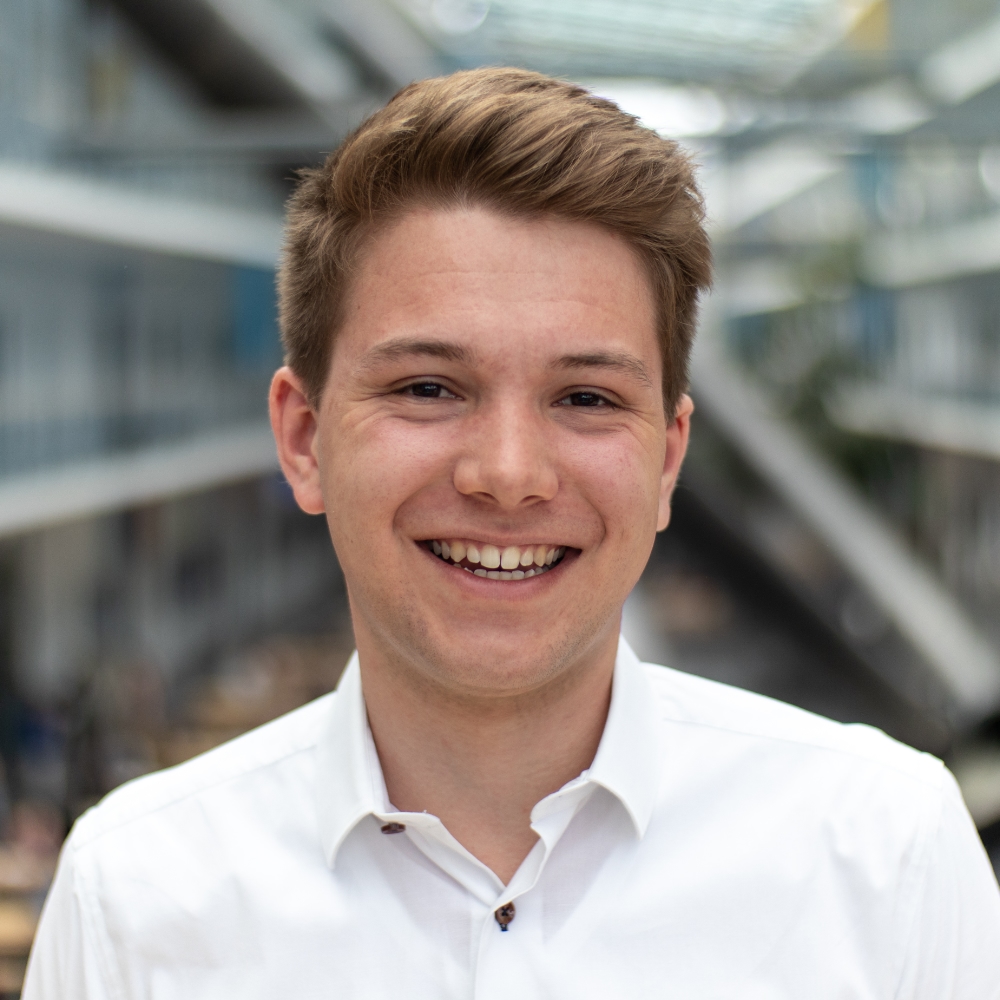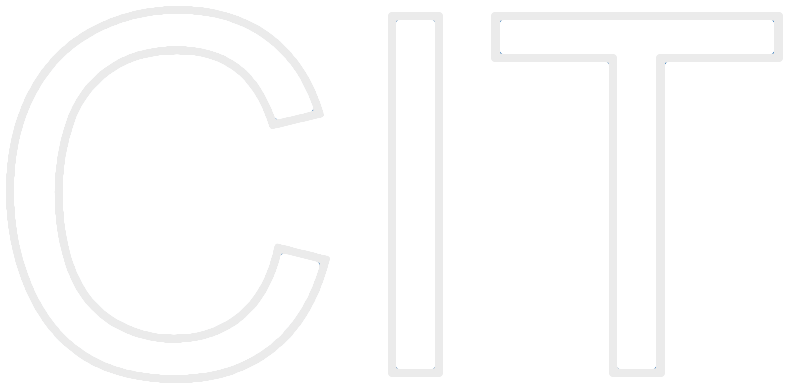 |
Dr. Jan Philip Bernius📧 Email: 👤 External Profiles: 🗓 Member until: |
Dr. Jan Philip Bernius was a research associate in the research groups for Applied Software Engineering (Prof. Brügge) and Educational Research (Prof. Krusche) from October 2018 to March 2023. Jan Philip completed his doctoral dissertation Automatic Assessment of Textual Exercises with Prof. Dr. Bernd Brügge in 2022. During his time in the research group, his research focused on computer science education and automated assessments with a focus on textual exercises. He also maintained the open-source learning platform Artemis. In addition, he taught the courses Introduction to Software Engineering (~2,200 students), Patterns in Software Engineering (~800 students), Interactive Learning, and iPraktikum. Jan Philip holds a Master of Science degree (2018) and a Bachelor of Science degree (2016) in Information Systems from the TUM. Jan Philip left TUM in 2023 to pursue a career in industry. Follow the external profiles for more recent updates, or visit www.janphilip.bernius.net.
📄 Publications
↓ 2023
Constructive
Alignment in Modern Computing Education: An Open-Source Computer-Based Examination System.
Matthias Linhuber,
Jan Philip Bernius, and Stephan Krusche.
In: Proceedings of the 23nd Koli Calling International Conference on Computing Education Research (Koli '23).
Koli (Finland), November 2023.
[bibtex]
↓ 2022
Automatic Assessment
of Textual Exercises.
Jan Philip Bernius.
Dissertation. Technische Universtität München. Munich (Germany), 2022.
[bibtex]
Machine Learning
Based Feedback on Textual Student Answers in Large Courses.
Jan Philip Bernius, Stephan Krusche, and Bernd Bruegge.
In: Computers and Education: Artificial Intelligence 3
(2022). ISSN: 2666-920X.
[bibtex]
Global Software
Engineering in a Global Classroom.
Paul Schmiedmayer,
Robert Chatley,
Jan Philip Bernius,
Stephan Krusche,
Konstantin Chaika,
Kirill Krinkin, and
Bernd Bruegge.
In: Proceedings of the 44th International Conference on Software Engineering - Software Engineering Education
and Training (ICSE SEET 2022).
Pittsburgh, PA (USA), May 2022.
[bibtex]
↓ 2021
A Machine Learning
Approach for Suggesting Feedback in Textual Exercises in Large
Courses.
Jan Philip Bernius, Stephan Krusche, and Bernd Bruegge.
In: Proceedings of the 8th ACM Conference on Learning @ Scale (L@S
'21).
Potsdam (Germany), June 2021.
[bibtex]
Toward
Computer-Aided Assessment of Textual Exercises in Very Large Courses.
Jan Philip Bernius.
SRC 1st Place
In: Proceedings of the 52nd ACM Technical Symposium on Computer Science Education (SIGCSE
'21).
Toronto, ON (Canada), March 2021.
[bibtex]
↓ 2020
Towards the
Automation of Grading Textual Student Submissions to Open-ended Questions.
Jan Philip Bernius, Anna Kovaleva, Stephan Krusche, and Bernd Bruegge.
In: Proceedings of the 4th European Conference of Software Engineering Education (ECSEE 2020).
Seeon (Germany), May 2020.
[bibtex]
Segmenting
Student Answers to Textual Exercises Based on Topic Modeling.
Jan Philip Bernius, Anna Kovaleva, and Bernd Bruegge.
In: Proceedings of the 17th Workshop on Software Engineering im Unterricht der Hochschulen (SEUH 2020).
Innsbruck (Austria), February 2020.
[bibtex]
↓ 2019
Toward
Usability Problem Identification Based on User Emotions Derived from Facial Expressions.
Jan Ole Johanssen,
Jan Philip Bernius, and Bernd Bruegge.
In: Proceedings of the 4th International Workshop on Emotion Awareness in Software Engineering (SEmotion 2019). Montréal (Canada), May 2019.
[bibtex]
Toward the
Automatic Assessment of Text Exercises.
Jan Philip Bernius and Bernd Bruegge.
In: Proceedings of the 2nd Workshop on Innovative Software Engineering Education (ISEE 2019).
Stuttgart (Germany), February 2019.
[bibtex]
📢 Presentations
↓ 2023
Artemis - Interaktives Lernen mit Automatischem Feedback.
Invited Talk
1. Präsenztreffen im Netzwerk Informatik Sachsen. Westsächsischen Hochschule Zwickau. Zwickau (Germany), March 2023.
↓ 2022
AI / Machine Learning in Education.
TUM Campus Heilbronn – Oxford Internet Institute Winter Meeting. Heilbronn (Germany), November 2022.
Automatic Assessment of Textual Exercises.
Rigorosum
Technical University of Munich. Garching (Germany), November 2022.
Automatic Assessment of Textual Exercises.
Invited Talk
Imperial College London, Dept. of Computing's EdTech Lab. London (United Kingdom), October 2022.
↓ 2021
Automatisierte Korrektur von Freitextaufgaben.
Vernetzungs- und Praxisworkshops (Bayerisches Kompetenzzentrum für Fernprüfungen).
Virtual, October 2021.
A Machine Learning Approach for Suggesting Feedback in Textual Exercises in Large
Courses.
8th ACM Conference on Learning @ Scale (L@S '21). Virtual, June 2021.
Toward Computer-Aided Assessment of Textual Exercises in Very Large Courses.
SRC 1st Place
52nd ACM Technical Symposium on Computer Science Education (SIGCSE
'21). Virtual, March 2021.
Toward Computer-Aided Assessment of Textual Exercises in Very Large Courses (Poster).
SRC 1st Place
52nd ACM Technical Symposium on Computer Science Education (SIGCSE
'21). Virtual, March 2021.
↓ 2020
Towards the Automation of Grading Textual Student Submissions to Open-ended Questions.
4th European Conference of Software Engineering Education (ECSEE 2020). Virtual, June 2020.
Segmenting Student Answers to Textual Exercises Based on Topic Modeling (Poster).
17th Workshop on Software Engineering im Unterricht der Hochschulen (SEUH 2020).
Innsbruck (Austria), February 2020.
↓ 2019
Toward the
Automatic Assessment of Text Exercises.
2nd Workshop on Innovative Software Engineering Education (ISEE 2019). Stuttgart (Germany), February 2019.
👤 Short CV
Doctorate in Computer Science
Technical University of Munich, Germany
2018 – 2022
Master of Science (M.Sc.) in Information Systems
Technical University of Munich, Germany
2016 – 2018
Bachelor of Science (B.Sc.) in Information Systems
Technical University of Munich, Germany
2013 – 2016
Ontario Secondary School Diploma (OSSD)
Ridley College, ON, Canada
2012 – 2013
🏆 Awards
- 2021: Ernst Otto Fischer Teaching Award 2nd Place
- 2021: ACM Student Research Competition (SIGCSE '21) 1st Place
- 2020: TeachInfAward for outstanding support during Corona
🏛 Program Committees & Organization
↓ 2023
- Reviewer: IEEE Software
- Program Committee: 5th International Workshop on Software Engineering Education for the Next Generation (SEENG 2023). Melbourne (Australia), May 2022.
↓ 2022
- Reviewer: Computers & Education: Artificial Intelligence (ISSN: 2666-920X)
- Program Committee: 4th International Workshop on Software Engineering Education for the Next Generation (SEENG 2022). Virtual, May 2022.
↓ 2020
- Technical Administration: 32nd IEEE International Conference on Software Engineering Education & Training (CSEE&T 2020). Munich (Germany), November 2020.
💻 Projects
- Athena: Automatic correction of free text exercises (description in German)
- Artemis
- Feedback2Go (iPraktikum WS 22/23)
- B/S/H/ SmartGrow — Companion for Bosch SmartGrow indoor gardening device (iPraktikum WS 19/20)
- Traffic Light Aid — Predicting switching patterns of Traffic Lights (iPraktikum SS 19)
- Cataract — Collect data on patients visual preferences (JASS 2019)
- cARgemini — Smart Incident Support in Assembly Lines using AR (iPraktikum WS 18/19)
- Continuous Usage- and Rationale-based Evolution Decision Support (CURES)
- HipRApp — Hip Rehabilitation App (iPraktikum SS 17)
- Quartett Home — Safely control your HomeKit enabled Home Accessories from your car's Multi-Media Interface (iPraktikum WS 15/16)
- incapptic — Next-Generation B2B App Store (iPraktikum WS 14/15)
👨🏫 Teaching
📚 Theses
↓ 2022
- Automatic Correction of Programming Exercises with Artemis & GitLab CI.
Benjamin Schmitz. TUMKolleg. December 2022. - Design of a User Interface for Feedback Management Systems.
Valerie Bucher. Bachelor's Thesis. April 2022. - Language Independent Text Assessment.
Tim Cremer. Bachelor's Thesis. April 2022.
↓ 2021
-
Changing the Grading Criteria During the Assessment in Learning Management Systems.
Merve Pinar. Master's Thesis. December 2021. -
Training Athene Based On Existing Assessments.
Argert Boja. Master's Thesis. December 2021. -
Explainable Assessment Systems.
Ndricim Rrapi. Master's Thesis. October 2021. -
Toward Automated Assessment of Textual Descriptions of Software Patterns Using Knowledge
Graphs.
Maisa Ben Salah. Bachelor's Thesis. September 2021. -
Knowledge Graphs in Assessment Systems: An Ontological Approach.
Michal Kawka. Bachelor's Thesis. September 2021.
↓ 2020
-
Optimizing and Scaling Automatic Assessments of Textual Exercises for Very Large
Lectures.
Linus Michel. Master's Thesis. November 2020. -
Detecting Inconsistent Grading for Textual Exercises.
Birtan Gültekin. Master's Thesis. November 2020. -
Exercise Assessment Managment in Artemis by Students and Instructors.
Jonas Petry. Bachelor's Thesis. October 2020. -
Utilizing Hierarchical Clustering to Optimize Automatic Text Assessment Quality.
Can Arisan. Bachelor's Thesis. September 2020. -
Increasing Accuracy of Automatic Assessment for Textual Exercises by applying context-specific
incremental training of ELMo models.
Adem Khachnaoui. Bachelor's Thesis. August 2020. -
Evaluation of Siamese Networks for improving similarity-based clustering of Textual Student
Answers.
Clemens Zuck. Master's Thesis. June 2020. -
Confidence of Automatic Feedback for Textual Exercises.
Ngoc-Minh Tran. Bachelor's Thesis. March 2020.
↓ 2019
-
Text Segmentation Based on Topic Modeling Applied to Students' Answers to Textual
Exercises.
Anna Kovaleva. Bachelor's Thesis. September 2019. -
A Formative Process for the Assessment of Textual Exercises in Very Large Lectures.
Gregor Ziegltrum. Bachelor's Thesis. August 2019. -
Improvements of the Quiz Functionality in ArTEMiS.
Ekaterina Sebina. Master's Thesis. April 2019. -
Usability Evaluation of the Quiz Exercise Creation in ArTEMiS.
Ekaterina Sebina. Guided Research. April 2019.


 orcid.org/0000-0001-8278-4598
orcid.org/0000-0001-8278-4598
